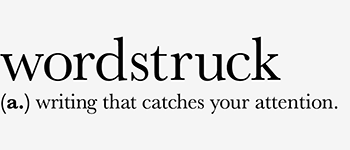So the World Cup kicked off today and as well as the host nation hoping to build its reputation on the back of football fever, there are plenty of big name brands hoping to cash in as a worldwide audience of millions turns its attention to South Africa.
It means beer and burgers in the supermarket, barbecues at the petrol station and any amount of plastic tat on sale just about everywhere you look.
There are some big brands out there hoping to draw some of that attention to themselves through their TV adverts. Nike’s done one featuring its sponsored footballers, Pepsi and Sony have taken a humorous approach, but the one that’s caught my eye, or rather ear is Carlsberg’s team talk.
It mimics a motivational team talk, putting you, the viewer, in the heart of the action; from the dressing room out into the tunnel, encouraged on by some British sporting legends, with a rousing speech ringing in your ears.
Watch it and listen to it. How does it make you feel? Inspired? Emotional? Excited? That’s not an accident. While the film itself is undoubtedly designed to push your emotional buttons, the language is designed to do that too. In fact it users a number of tricks to grab your attention.
Here are the opening lines:
“He says he knows how good you are. You know how good you are. It’s time to prove how good you are.”
Look at the repetition. It’s like poetry. Sometimes when we’re writing, we may feel that we shouldn’t repeat ourselves and will go to great lengths to find an alternative word or phrase, but here it’s used to create a particular effect.
Repetition is often used in speeches, to reinforce a point or to get a message across. And it can be stirring stuff. Just think of Winston Churchill: “We shall fight on the beaches, we shall fight on the landing grounds, we shall fight in the fields and in the streets, we shall fight in the hills; we shall never surrender.”
Did you notice that ‘how good you are’ is repeated three times in those opening lines? That’s not an accident either.
Patterns of two and three (doublets and triplets) just seem to make sense to our ears. In fact the rule of three is often used in speeches because people tend to remember three things. For example: “Friends, romans, countrymen”, from Shakespeare’s Julius Caesar, or Tony Blair’s “Education, education, education.”
It also helps to create a rhythm to the language. And in the case of the Carlsberg advert that rhythm subtly changes as it builds to its climax. Although none of the phrases are particularly long and wordy, it starts off slowly and by the end there’s a noticeable quickening created by short, sharp phrases, like: “Enough talk. Time for action”. There are two sentences there without a verb in them. Remember your English teacher told you a sentence had to have a verb in it? Sometimes breaking the ‘rules’ can create something quite powerful. The trick is knowing when to do it.
Listen again to the words in this advert. There’s nothing highbrow, nothing fancy there. “It’s gonna take bottle,” may be a sly nod to the brand’s product, but it’s also the kind of language that you’d use with your mates down the pub. The point is that it’s simple, everyday language. Nothing poshed up, no jargon, just good old everyday words.
And that’s something that I try to explain in my tone of voice workshops. That simple language doesn’t have to be dull or dumbed down. Simple language doesn’t have to lack passion. Simple language can be strong and powerful. As strong and powerful as a ball hitting the back of the net.

You are a clever daughter who I am so proud of .XXX